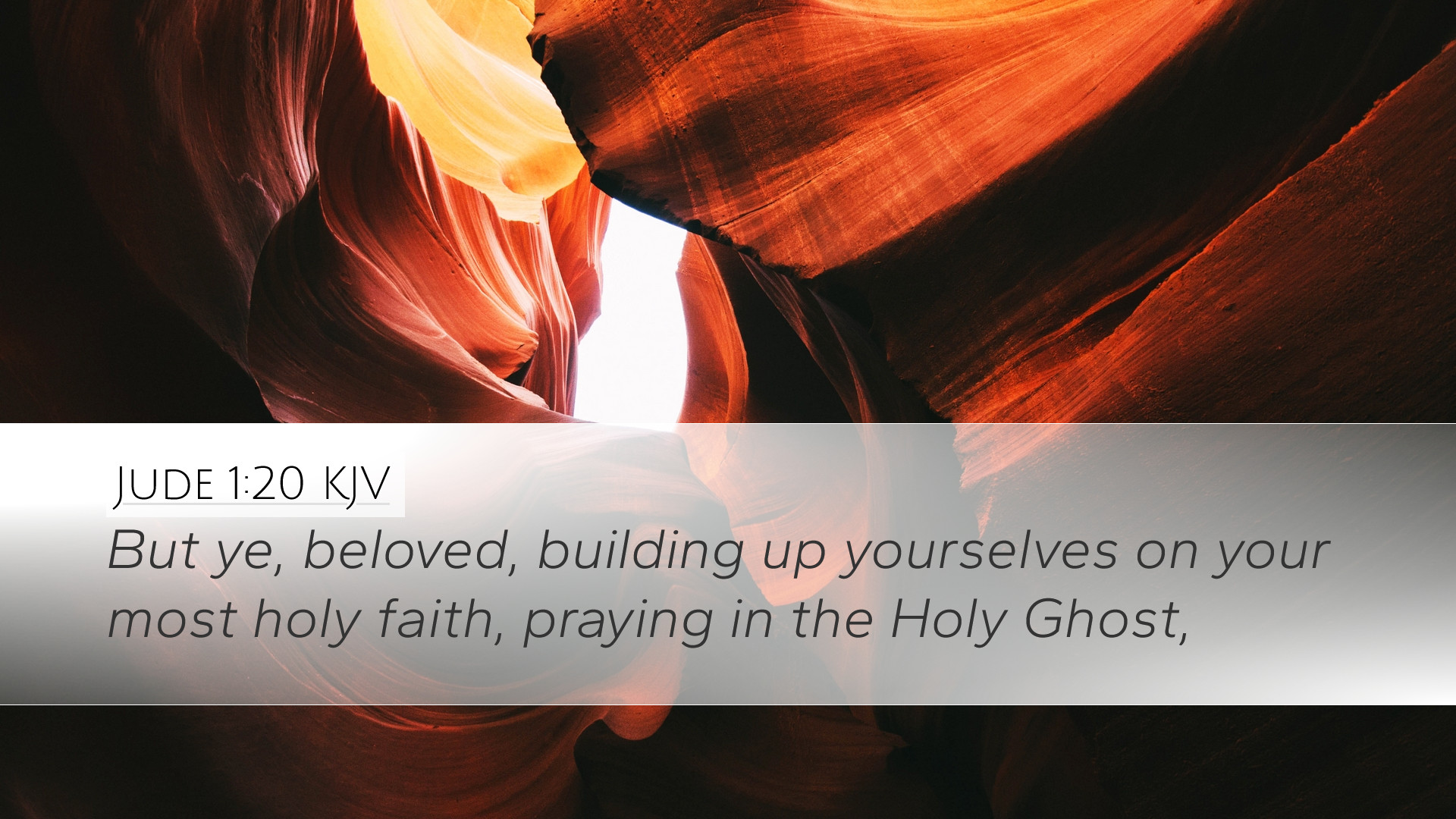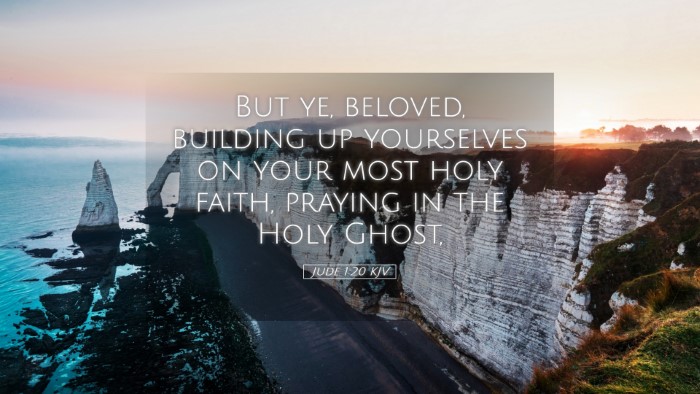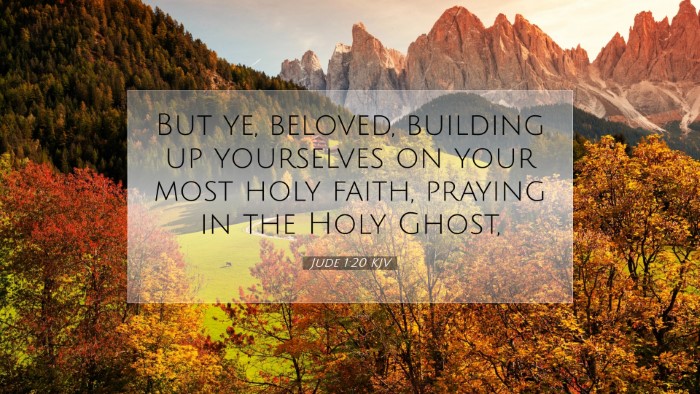Commentary on Jude 1:20
Jude 1:20 states: "But you, beloved, building yourselves up on your most holy faith, praying in the Holy Spirit."
This verse is a foundational exhortation in Jude's epistle, encouraging believers to strengthen their faith and maintain their spiritual vitality through prayer and dependency on the Holy Spirit. The insights from various public domain commentaries provide a comprehensive understanding of its theological significance and practical application.
Exegesis of the Text
Jude emphasizes the personal responsibility of believers to "build yourselves up."
This reflects a proactive approach to spiritual growth, indicating that faith is not only received but also requires active engagement and development by the believer.
The phrase "most holy faith" can be interpreted as the faith received through the revelation of Jesus Christ, distinct from ordinary faith and underlining its sanctity.
Commentary Insights
Matthew Henry
Matthew Henry notes that building oneself up in faith suggests a deliberate effort to grow spiritually. He emphasizes the importance of both community and personal discipline in this process.
He suggests that believers are called to deepen their understanding of the Gospel and to be diligent in their actions.
Henry underlines that this building is edified through the ordinances of God, proclaiming that prayer, particularly in the Holy Spirit, is essential for this growth:
- Importance of Prayer: According to Henry, praying in the Holy Spirit means to pray with spiritual enlightenment and alignment with God’s will.
- Holiness of Faith: The aspect of "most holy" reminds Christians to nurture their faith responsibly and devoutly.
Albert Barnes
Albert Barnes expands on the concept of "building yourselves up" by discussing the necessity of internal versus external sustenance for faith.
He stresses the need for prayer as a regular practice in believers' lives, highlighting that prayer in the Spirit aids in understanding God’s purpose.
Barnes also emphasizes the communal aspect of faith, suggesting that believers should encourage one another in these practices:
- Collective Growth: He asserts that while individual prayer is crucial, corporate prayers and church attendance foster a communal faith environment.
- Active Engagement: Barnes encourages believers to engage actively with the Word of God, suggesting it serves as a foundation for prayer and spiritual growth.
Adam Clarke
Adam Clarke provides a more interpretative approach, examining the mechanics of faith and prayer.
He suggests that "building up" refers to the entire process of spiritual edification which is both personal and communal.
In Clarke’s view, praying "in the Holy Spirit" indicates that believers should rely on the Holy Spirit for guidance in their prayers, which leads to a more profound and effective communication with God:
- Spiritual Empowerment: Clarke highlights that the Holy Spirit empowers believers to pray in accordance with God’s will, resulting in transformative outcomes.
- Development of Faith: He emphasizes that faith is dynamic and should anticipate growth as a believer matures in their relationship with God.
Theological Implications
This verse in Jude encapsulates essential elements of Christian theology, particularly the interaction between faith and works.
The exhortation to "build yourselves up" highlights the synergy between divine grace and human responsibility.
Understanding that faith must be nurtured can prevent spiritual stagnation, while the call to pray emphasizes the believer's constant reliance on God:
- Faith as a Journey: The concept of building suggests that faith is an ongoing process rather than a one-time event.
- Role of the Holy Spirit: The Holy Spirit plays a critical role in guiding believers’ prayers and fostering their spiritual development.
Practical Applications for Believers
The practical applications of Jude 1:20 are significant for pastors, students, theologians, and Bible scholars. Here are some vital applications:
- Personal Spiritual Discipline: Individuals should create regular prayer routines that engage the Holy Spirit in their conversations with God.
- Community Engagement: Churches can foster environments that encourage fellow believers to build each other up through teaching, praying, and studying Scripture together.
- Holistic Understanding of Faith: The verse serves as a reminder that faith is both a personal and communal journey that should not be neglected or taken lightly.
Conclusion
Jude 1:20 serves as a profound call to action for believers to engage in the active construction of their spiritual lives.
Insights from public domain commentaries reveal the rich theological implications and practical applications of this verse.
By prioritizing prayer in the Holy Spirit and nurturing their most holy faith, believers can ensure they remain steadfast in the truth amidst a challenging world.


